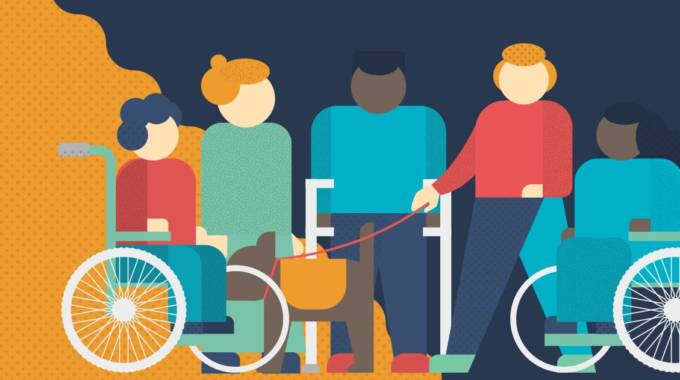
The Sunday Mail

Disability Issues
Dr Christine Peta
CHILDREN of deaf adults (coda) are commonly referred to as “mother father deaf”.
Research has indicated that more than 90 percent of children who are born of deaf parents are not deaf, but they often have to learn sign language at very early stages of their lives.
For instance, in Zimbabwe, most children of hearing parents may begin by learning two languages — Shona or Ndebele and English, but coda may, at the same time, have to begin by learning three languages — Sign Language, Shona or Ndebele and English.
Coda often shoulder adult responsibilities before they become adults.
It is not surprising to find a five-year-old coda assuming the role of sign language interpreter for his or her deaf parents, and for issues that are unfit to be addressed by a child.
Reflecting on her life, Mutsa, who is now an adult child of deaf parents, said: “I was only five years old when my mother was raped by our neighbour. I had to help my mother report the rape to the police because the police could not use sign language. My mother is also uneducated, so she could not write anything. So, at such an early age, I was exposed to things that go on between a man and a woman, and what rape really means. I think it is just a very heavy burden for a little girl to carry.”
She also had to assist her mother to get proper treatment.
“Yes, I dealt with the police about the rape but I also had to deal with the nurses at the clinic because my mother got a sexually transmitted infection (STI). She was using sign language and the nurses did not understand what she was saying, so, I had to explain to the nurses, to make sure my mother got the right medical treatment. So, by the age of five, I knew all these things about rape, STI and a whole lot of adult stuff.”
While some deaf parents may not want their children to be their sign language interpreters for adult conversations, they may not be able to afford an interpreter.
They are left with no choice but to call upon their children for the service.
Some deaf parents may also feel they can only trust their children with correct interpretation, and keeping the adult conversations confidential, hence they may not want to use “outsiders”.
However, since they are minors, coda are commonly not taken seriously by service providers, among other people.
“When I look back, I now see that the police and the nurses were not taking me seriously. They thought I was just a child, but the point is I had grown up early and knew what I was doing. I was a child in age, but an adult in mind. My mother never got justice for the rape. Since I was a little girl who was interpreting, the police did not know what to do with me. We never really got to the courts of law, so, sadly, the case died just like that,” said Mutsa.
Coda also have to be very active listeners.
They have to hear all sounds on behalf of their parents. These include public announcements, alarms and sounds made by thieves who may want to break into their houses.
“I feel I had no childhood. I was responsible for taking care of my deaf parents. While some children were out playing, I had to stay at home, in case someone comes and my services of interpreting sign language are required.”
With laughter, Mutsa recalled one of the benefits of being a coda, who is also a sign language interpreter for his or her deaf parents.
“When my parents came for open days at school, they never got to hear a bad report about me from my teachers. I remember my Maths teacher telling my parents that he was not happy with my grades because they were very low. But, because I was the interpreter, I, instead, told my parents that the teacher had said, ‘Mutsa is doing very well with her Maths this year.’ Because my parents could not read the lips of the teacher, my parents just smiled. I got away with it, but after that I worked very hard and got better grades.”
On the other hand, being a coda and learning sign language as well as spoken languages from as early as the age of two expands the options for coda at later stages of their lives.
For example, some coda may choose to take careers in education as teachers for deaf children. Such careers may result in coda gaining great personal fulfilment, as they help deaf children overcome the challenges they may encounter as a result of not being able to hear.
Section 3.16 of the National Disability Policy of Zimbabwe is dedicated to both children with disabilities and children of parents with disabilities. Nonetheless, further research in the terrain of coda is required, so that their needs and concerns can be fully addressed across sectors.
Dr Christine Peta is a disability, policy, international development and research expert. She is the national director of Disability Affairs in Zimbabwe. She can be contacted on: [email protected]



